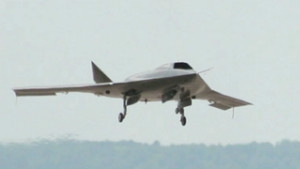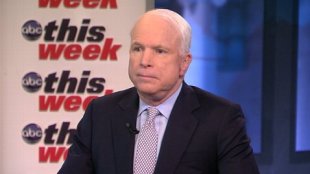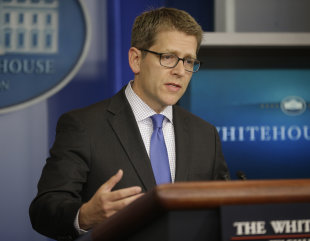
Drone strikes are a necessary evil, but one that must be used with more temperance as the United States’ security situation evolves, President Barack Obama said Thursday.
America prefers to capture, interrogate and prosecute terrorists, but there are times when this isn’t possible, Obama said in a speech at the National Defense University in Washington. Terrorists intentionally hide in hard-to-reach locales and putting boots on the ground is often out of the question, he said.
Thus, when the United States is faced with a threat from terrorists in a country where the government has only tenuous or no influence, drones strikes are the only option — and they’re legal because America “is at war with al Qaeda, the Taliban and their associated forces,” Obama said.
He added, however, “To say a military tactic is legal, or even effective, is not to say it is wise or moral in every instance. For the same progress that gives us the technology to strike half a world away also demands the discipline to constrain that power — or risk abusing it.”
Increased oversight is important, but not easy, Obama said. While he has considered a special court or independent oversight board, those options are problematic, so he plans to talk with Congress to determine how best to handle the deployment of drones, he said.
“From our use of drones to the detention of terror suspects, the decisions that we are making now will define the type of nation and world that we leave to our children,” he said.
Today, al Qaeda operatives in Pakistan and Afghanistan worry more about protecting their own skin than attacking America, he said, but the threat is more diffuse, extending into places such as Yemen, Iraq, Somalia and North Africa. And al Qaeda’s ideology helped fuel attacks like the ones at the Boston Marathon and U.S. diplomatic compound in Benghazi.
Obama said the use of lethal force extends to U.S. citizens as well.
On Wednesday, his administration disclosed for the first time that four Americans had been killed in counterterrorist drone strikes overseas, including one person who was targeted by the United States.
“When a U.S. citizen goes abroad to wage war against America — and is actively plotting to kill U.S. citizens; and when neither the United States, nor our partners are in a position to capture him before he carries out a plot — his citizenship should no more serve as a shield than a sniper shooting down on an innocent crowd should be protected from a SWAT team,” Obama said.
To stop terrorists from gaining a foothold, drones will be deployed, Obama said, but only when there is an imminent threat; no hope of capturing the targeted terrorist; “near certainty” that civilians won’t be harmed; and “there are no other governments capable of effectively addressing the threat.” Never will a strike be punitive, he said.
Those who die as collateral damage “will haunt us for as long as we live,” the president said, but he emphasized that the targeted individuals aim to exact indiscriminate violence, “and the death toll from their acts of terrorism against Muslims dwarfs any estimate of civilian casualties from drone strikes.”
It’s not always feasible to send in Special Forces, as in the Osama bin Laden raid, to stamp out terrorism, and even if it were, the introduction of troops could mean more deaths on both sides, Obama said.
“The result would be more U.S. deaths, more Blackhawks down, more confrontations with local populations and an inevitable mission creep in support of such raids that could easily escalate into new wars,” he said.
The American public is split on where and how drones should be used, according to a March poll by Gallup.
Although 65% of respondents said drones should be used against suspected terrorists abroad, only 41% said drones should be used against American citizens who are suspected terrorists in foreign countries.
—–
What do you think? Should American Citizens be targeted and killed on American or Foreign soil without due process of law? Click below for the full article.
http://www.cnn.com/2013/05/23/politics/obama-terror-speech/index.html?hpt=po_c1



